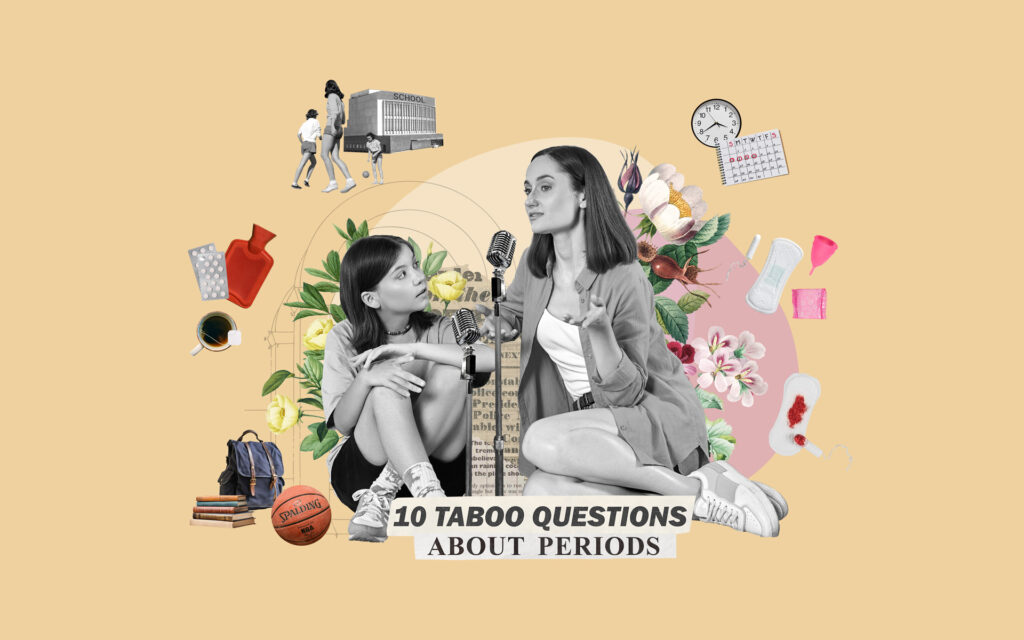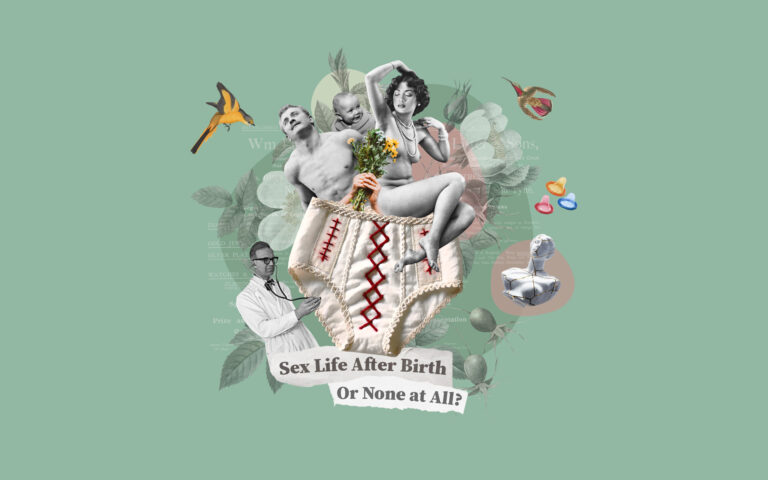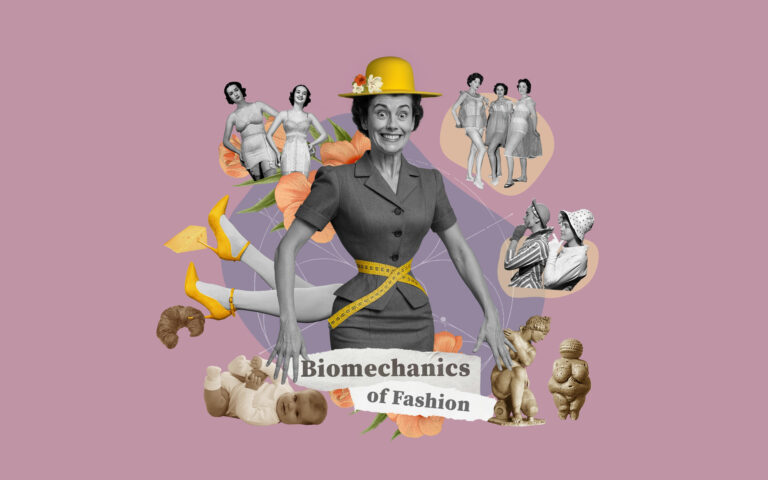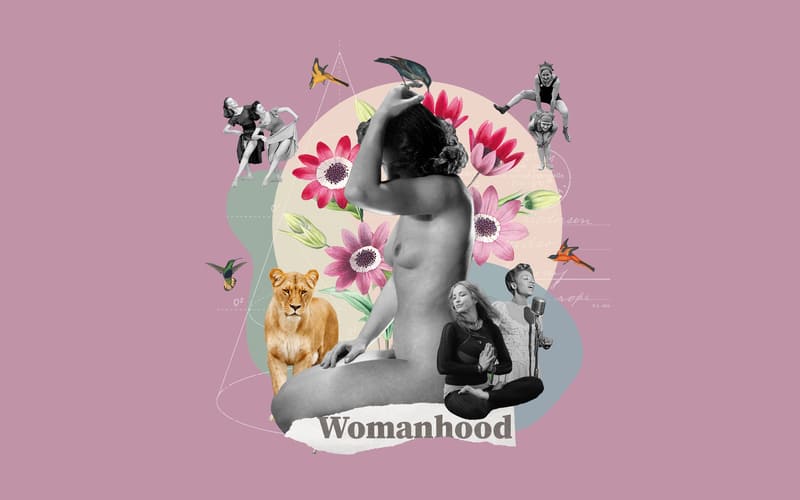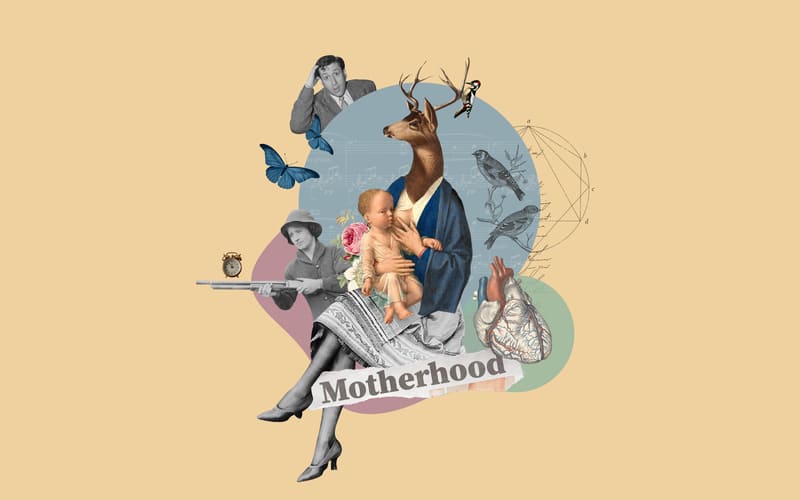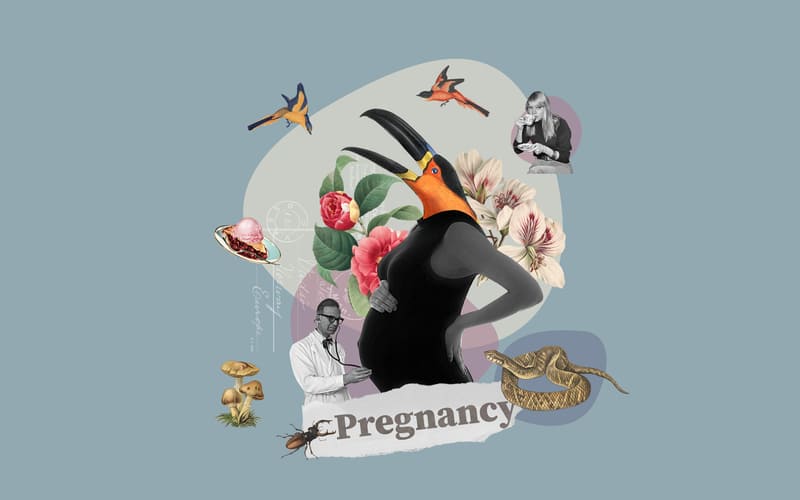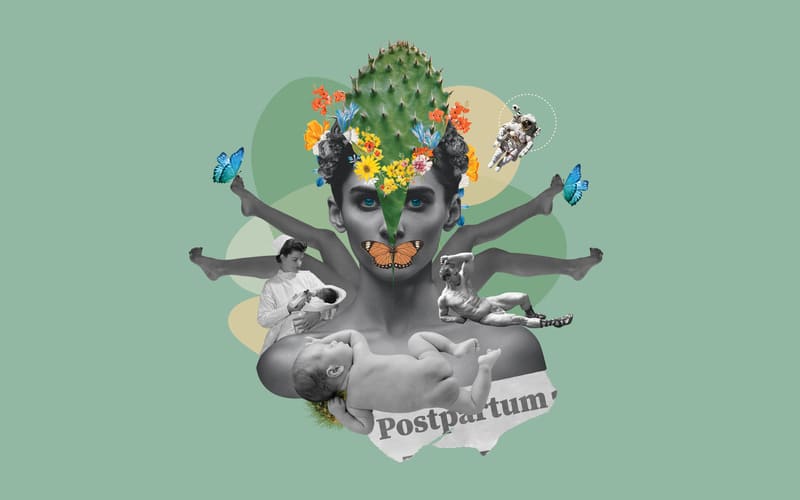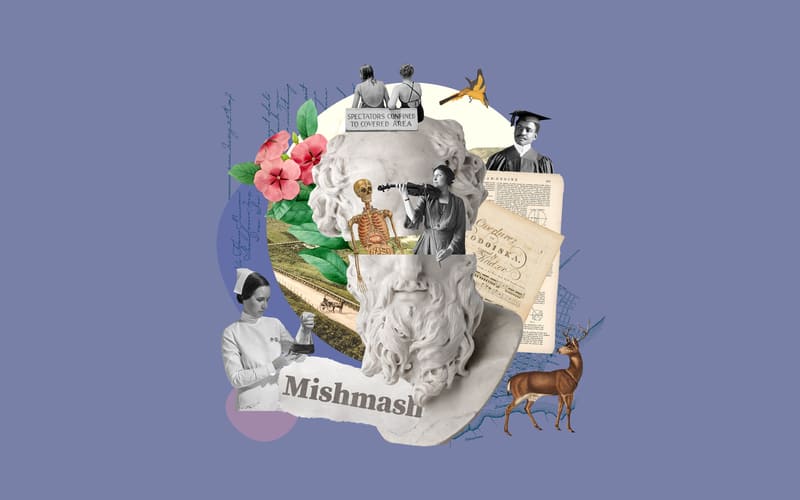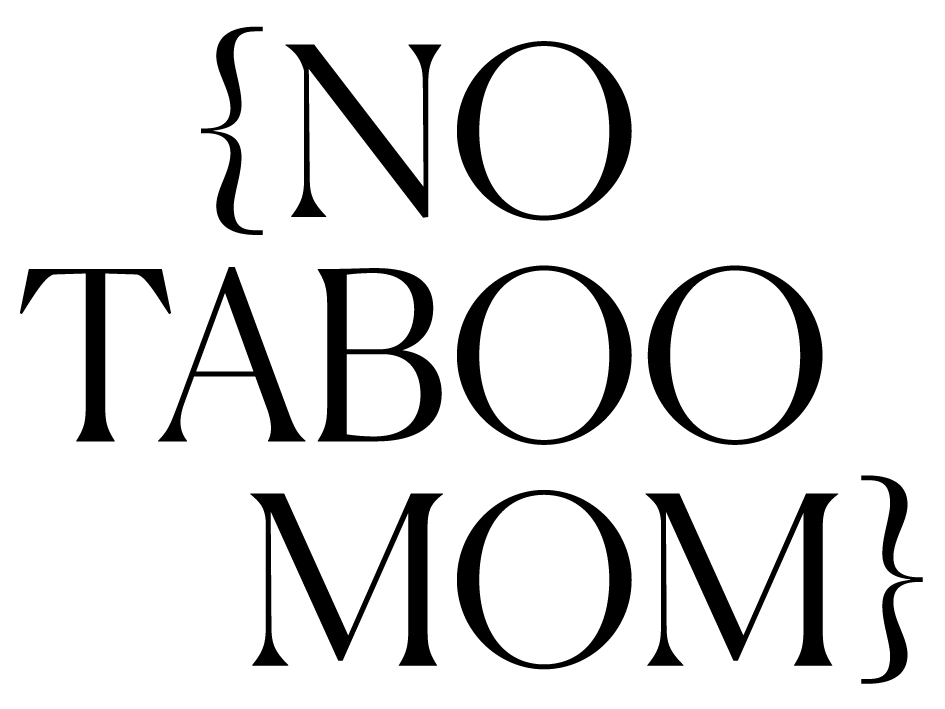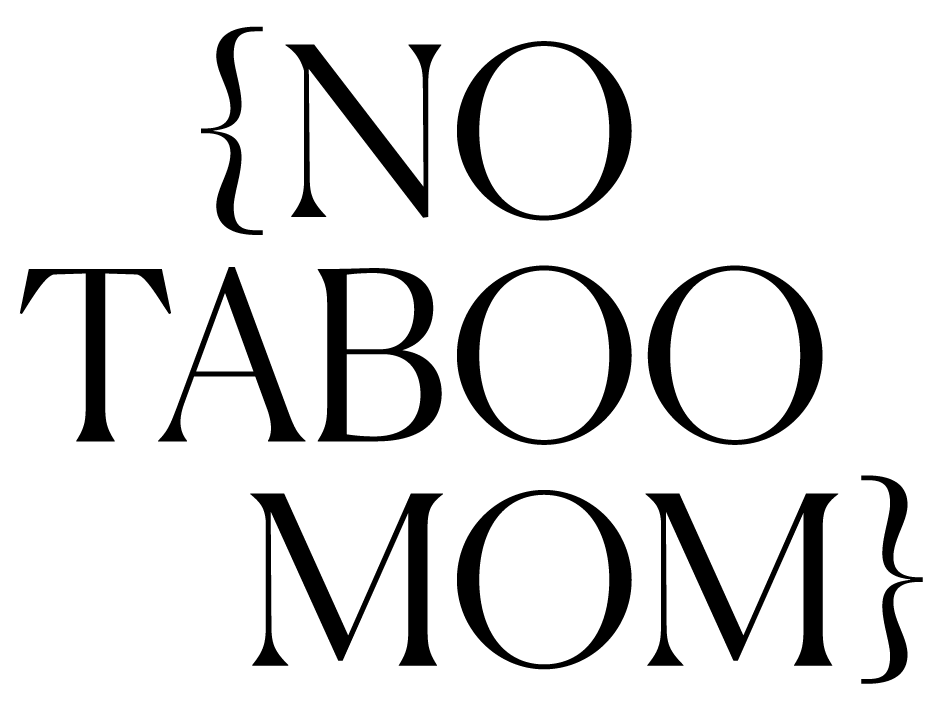Let’s Talk About Periods:
Opening the Conversation Between Mothers and Daughters
Interview with the mother
- Author: Sandra
- Country of origin: Germany
- Age at the time of publication: 37 years old
1. How have you talked to your daughter about menstruation, and have you looked at any books or media with her? If so, can you recommend any?
I’ve always been very open about my period at home, and eventually, the question came up: “Why do you bleed, Mom?” That’s when our conversations about menstruation started naturally. I’ve also found some helpful resources like Girl Stuff: Everything about Your Cycle, Your Period, and Your Sexuality (German) by Sina Oberle (original title: Mädchensache: Alles über deinen Zyklus, deine Periode und deine Sexualität) and Menstrupedia Comic: The Friendly Guide To Periods For Girls (English) by Aditi Gupta. Both of these books are excellent starting points for girls.
2. Which menstrual hygiene products did you introduce your daughter to and which does she prefer?
I introduced Matilda to all the options available—period underwear, pads, menstrual cups, and tampons. She really likes period underwear, but it’s a bit tricky to change and wash at school. So right now, she wears her period underwear along with a pad. Halfway through the school day, she removes the pad and relies on the underwear for the rest of the day.
3. Were there any particular challenges or concerns your daughter had about her period, and how did you address them?
She was worried about getting her first period at school and whether it would be noticeable. To help, I advised her to pay attention to signs her body might give, like cramping in her lower abdomen. We also prepared a small bag with period underwear, sanitary pads, and a painkiller—just in case.
4. How do you support your daughter in managing menstrual symptoms such as cramps or mood swings?
Luckily, her mood swings aren’t too intense at this stage. She does experience mild cramps from time to time. When that happens, she takes a hot bath and uses a heating pad, which usually helps.
5. Has menstruation changed the relationship between you and your daughter? If so, in what way?
Our relationship has shifted a bit, mainly because we’ve started talking about different things. It’s hard to say whether that’s purely because of her period or just a part of growing up. I think it’s more a natural progression of puberty and the changes happening in her body.
6. How do you handle situations when your daughter feels uncomfortable or embarrassed about menstruation?
7. Have you introduced any traditions or rituals to mark your daughter’s first period?
We don’t have any particular rituals. However, preparing a little period bag has become a kind of tradition. I’ve already started this with my younger daughter as well.
8. Is there anything you wish you had known before your daughter got her first period? What advice would you give other mothers preparing for this?
9. How do you support your daughter in developing a healthy relationship with her body and menstruation?
Matilda has a very positive body image and seems comfortable with herself. She even wears a supportive corset in the afternoons and at night, which doesn’t bother her, even during school trips. I’m relieved that she feels so at ease.
10. How do you handle your own period around your daughter?
Have you undergone a vasectomy procedure yourself, or do you know someone who has? Perhaps you have valuable insights or experiences that haven’t been covered in this article. We’d love to hear from you! Share your thoughts, questions, or personal stories about vasectomy in the comments below. Your contribution could provide valuable support and information to others considering this option for contraception. Let’s continue the conversation and support each other on this important topic.
Related article: Postpartum Sex? – Sex on your own timeline
Interview with the daughter
- Author: Matilda
- Country of origin: Germany
- Age at the time of publication: 15 years old
1. Can you describe how you felt when you got your period for the first time?
I got my first period when I was 13. Thankfully, I was at home, so I didn’t feel too stressed and was pretty calm about it. I had already talked to my mom about it beforehand, which helped a lot. I was a little surprised when it happened, but that was the only real emotion I felt at the time.
2. Is there anything you particularly like or dislike about your period?
I really can’t complain, but I’m sure that might change over the years. Right now, I’m just happy that my period is quite regular, and I can tell when it’s coming because of a slight cramping in my abdomen. I don’t have much pain, and I’m still able to do all my usual activities.
3. How do you manage your period at school or while doing sports?
At school, I participate in sports, but if it feels like too much or if I’m not feeling well, my sports teacher is really cool and understanding and lets me sit out. In general, I don’t stress about it at school anymore—it’s just a normal part of life now.
4. What menstrual products do you use (e.g. pads, tampons, menstrual cup), and why?
I usually use pads because I find them the most comfortable. I’ve tried tampons, but I didn’t have a good experience with them. I also use period underwear, which works really well for me. I’ve only had positive experiences with it.
5. Do you feel comfortable talking about your period, or is it more of a taboo topic?
I feel very open about it, and it’s never been a taboo for me. It’s a natural thing, so there’s no harm in talking about it. Among my friends, we discuss everything, and we often share tips. It’s also treated normally in my family, so I can always ask questions or talk about it without feeling awkward.
6. Are there any resources or people you turn to when you have questions or problems about your period?
7. Have you ever been to a gynecologist? If so, how did you feel, and were you prepared for what to expect?
I haven’t been to a gynecologist yet. In school, they told us you don’t have to go right after you get your first period. It’s really only necessary if you have any problems or when you have your first boyfriend.
8. What would you like to tell other girls your age who may be unsure or nervous about menstruation?
9. How has your attitude towards menstruation changed since your first experience?
Before I got my period, I didn’t really think much about it, so my feelings haven’t changed that much. But over time, I’ve started to see it in a positive way. I don’t think it’s a bad thing when it comes anymore.
10. Are there any traditions or customs in your family or culture related to menstruation?
Have you undergone a vasectomy procedure yourself, or do you know someone who has? Perhaps you have valuable insights or experiences that haven’t been covered in this article. We’d love to hear from you! Share your thoughts, questions, or personal stories about vasectomy in the comments below. Your contribution could provide valuable support and information to others considering this option for contraception. Let’s continue the conversation and support each other on this important topic.
Related article: Postpartum Sex? – Sex on your own timeline
Wrapping It Up: Creating Open Conversations
References :
Did you like this article?

Meet the Author
Julia Kolbe, co-founder of No Taboo Mom, is a Berliner, psychiatric nurse, medical instructor, wife, and mom of two girls. She holds a Master’s degree in Health, Nursing, and Medical Education with a focus on Nursing Pedagogy, equipping her to bridge professional care and education with real-life experience. Working in German healthcare, she saw firsthand the gaps in addressing women’s well-being, particularly during pregnancy and motherhood. These experiences inspired her to take action and advocate for a more holistic and compassionate approach to women’s health. “No Taboo Mom is about breaking the silence and fostering honest conversations. By sharing our stories, we empower women to navigate the unspoken challenges of womanhood and motherhood with strength and solidarity.

